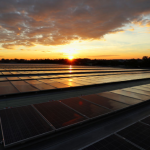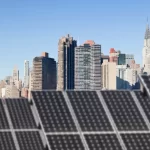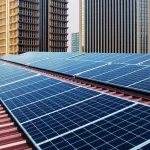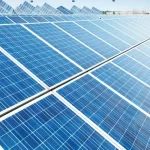
Whether you’ve made a commitment to help protect the environment or simply want to save money on your electric bills, you understand solar is a wise investment and that careful planning will ensure you make the right decisions. As you consider the differences between solar shingles vs. solar panels, this post will help you determine which product is right for you.
Solar Shingles vs. Solar Panels: Cost and Savings
According to the U.S. Department of Labor Statistics, the average New Yorker paid 19.8 cents per kWh for electricity in November of 2014, 47.8% more than the national average of 13.4 cents. Residential solar systems are a wise investment because your costs are recovered through a reduction in purchases from your electrical service provider.
Solar shingles perform a dual function: they weatherproof your home while producing electricity. Designed to look like conventional asphalt shingles, they are typically installed with the installation of a new roof. Although solar shingles will offset the cost of traditional shingles for a section of your roof, their dual function makes them more complex. Thus, they are more expensive to install than solar panels. Solar shingles are typically less efficient, contributing to their higher overall cost
Some solar shingles are flexible and provide a greater potential for design integration, but flexible shingles are more susceptible to thermally accelerated degradation. Solar shingles can be installed on an existing roof; however, a section of existing shingles must be removed. Modern solar panels have an attractive and sleek design, but since earlier generations of panels were large and cumbersome, many homeowners felt the extra cost was worth the aesthetic benefits.
Solar Shingles vs. Solar Panels: Efficiency and Power Generation
Distance from the equator (latitude) affects the optimal angle for photovoltaic cells to receive solar radiation and a crucial part of maximizing the value of a rooftop solar system is planning for environmental and structural factors. All of these factors influence the cost, aesthetics and overall efficiency of the system.
Utilizing relatively new technology, solar shingles are becoming more efficient; however, your roof must be angled correctly for maximum efficiency and power generation. A single solar shingle (similar in size and shape to an asphalt shingle) produces between 13 and 63 watts, while a single solar panel (18 square feet) produces between 185 and 240 watts. Thus, a solar shingle system produces less electricity than a panel system of the same size.
Solar Shingles vs. Solar Panels: Performance
Since solar shingles absorb heat directly into the roof, you may need to install an attic fan to maintain proper circulation. In contrast, air gaps under solar panels improve system performance because the photovoltaic cells are kept cooler. Avoiding areas shaded from the sun, panels are positioned for maximum power production during installation While they may be more pleasing to the eye, solar shingles are not necessarily a good match for all roofs. A qualified installer can inspect your roof to determine whether solar shingles are a good option for your home.
Solar Shingles vs. Solar Panels: Maintenance
With no moving parts, neither solar panels nor solar shingles require much maintenance. Simply remove large debris and heavy snow loads during the winter and hose them off in the spring. Remember to use caution when removing snow from solar shingles, since they have more connectors.
Solar Shingles vs. Solar Panels: Other Important Considerations
Net Metering allows consumers in Orange and Rockland as well as Westchester Counties in New York to install grid-connected solar systems that reduce their electricity bills and decrease their impact on the electric grid. Through Net Metering, you will enjoy savings right away.
When considering solar shingles vs. solar panels, homeowners should also keep in mind the following:
- Electrical costs with and without a solar system.
- Long-term electricity saving.
- Tax advantages.
- Payback period.
Whichever product is best for you, a rooftop solar system is a wise investment that will increase the value of your home and pay for itself over the years to com, ultimately saving you money!




